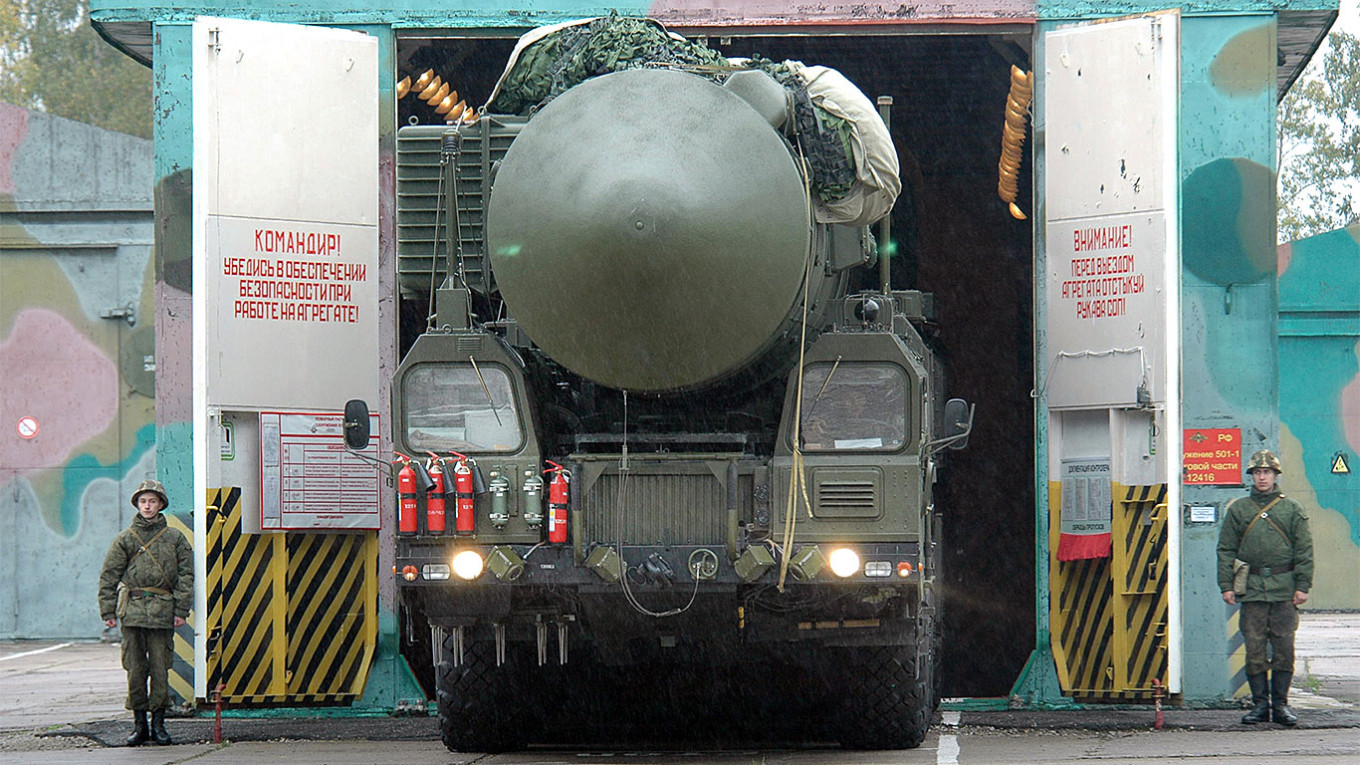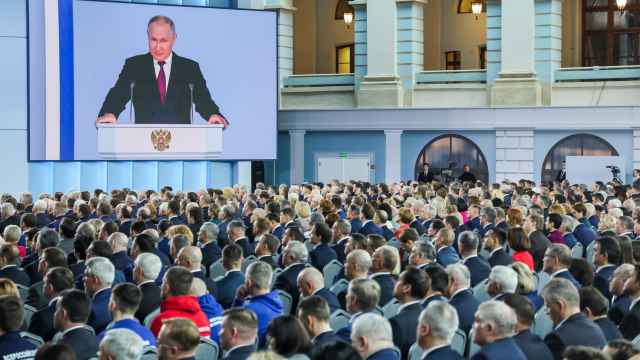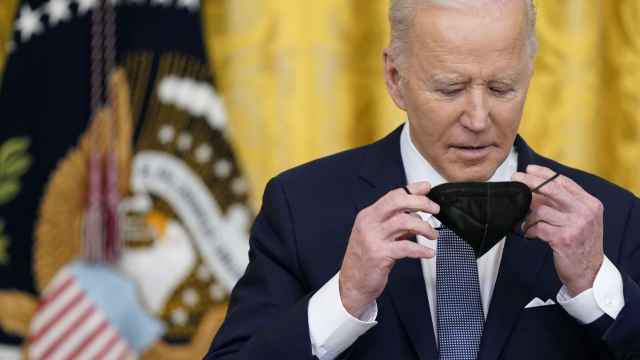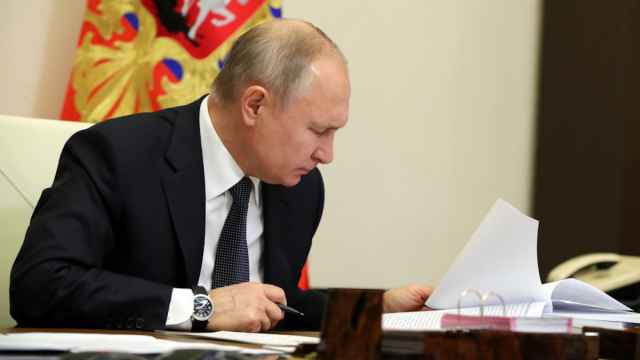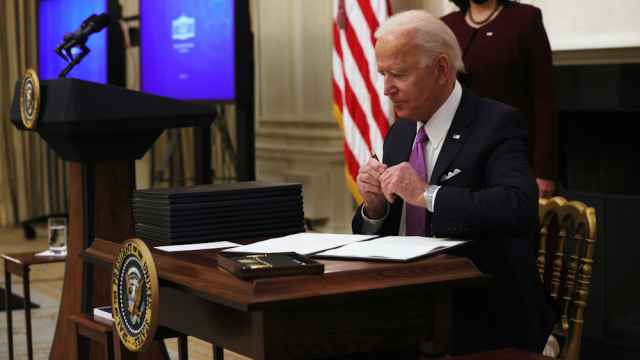Accusing NATO of openly seeking to attack Russia’s nuclear facilities, Russian President Vladimir Putin on Tuesday announced that Moscow would suspend its participation in the New START treaty, the last surviving arms treaty between the world's two biggest nuclear powers, which caps the size of both the U.S. and Russian nuclear stockpiles.
The announcement, made ahead of the one-year anniversary of Russia's invasion of Ukraine, follows months of veiled threats by the Russian leader that have revived long-dormant fears that nuclear weapons could be used in Europe.
Here are some key details:
What does the treaty say?
Part of the Obama administration's push to "reset" ties with the Kremlin, the treaty was signed in Prague by former U.S. president Barack Obama and former Russian president Dmitry Medvedev in 2010.
The accord restricts former Cold War rivals Moscow and Washington to a maximum of 1,550 deployed warheads each — cutting a limit set in 2002 by about 30% — and 800 launchers and bombers, which nevertheless left both sides sufficient nuclear weapons to blow up the world many times over.
The treaty also provided for a series of mutual onsite inspections.
How did Russia’s invasion of Ukraine change the agreement?
Russia's invasion of Ukraine a year ago dealt a severe blow to the treaty, with Putin issuing thinly veiled threats to use nuclear weapons and the U.S. leading the push to arm Ukraine and punish Moscow for its aggression.
Moscow announced in August 2022 that it was suspending U.S. inspections of its military sites, claiming that the United States was obstructing visits to its facilities, an accusation Washington rejected.
Russia also indefinitely postponed talks to discuss the resumption of inspections under the treaty that had been due to take place in Cairo in November, accusing the United States of "toxicity and animosity."
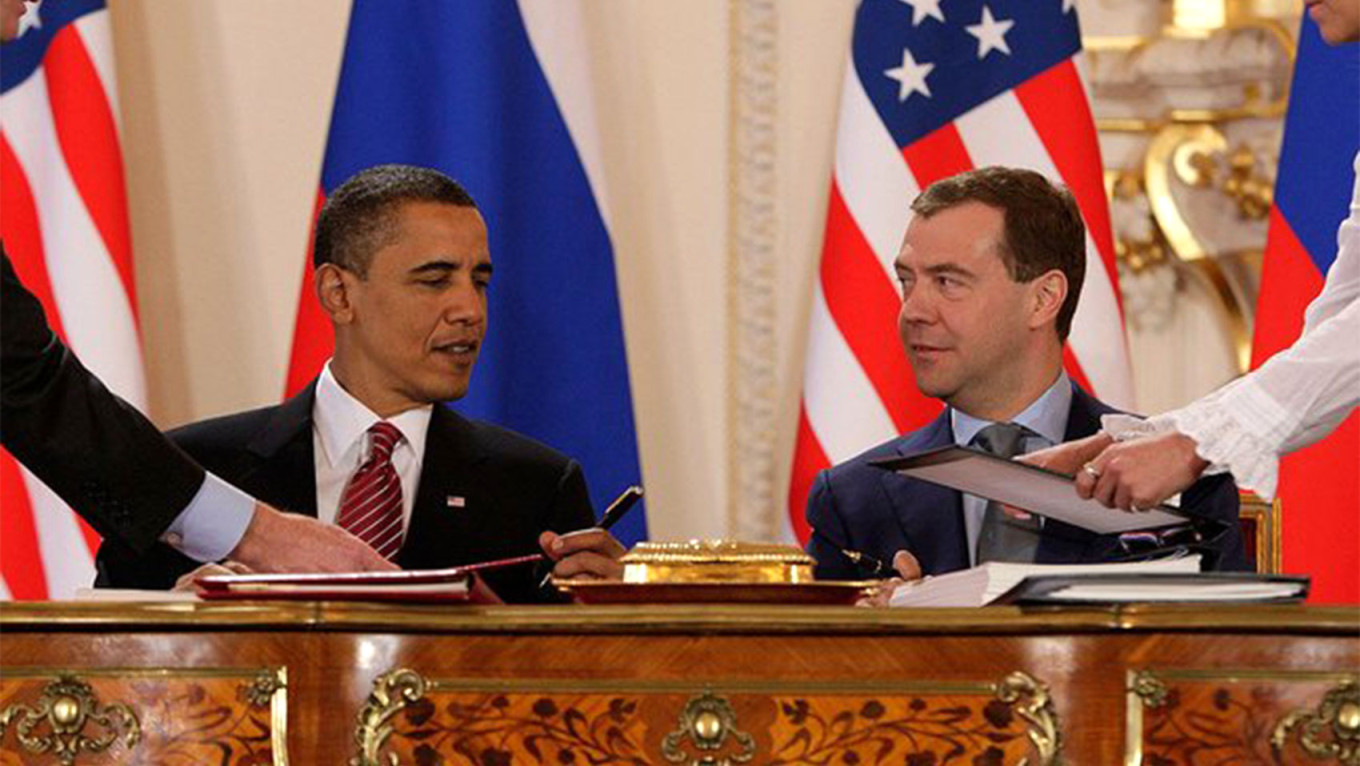
In January, the United States accused Russia of being in non-compliance with the treaty.
Russia's ambassador to the United States replied that Moscow had been "irreproachably observing" the accord and that the responsibility for the escalation lay "entirely with Washington."
What Russia’s suspension means and how the world reacted:
Putin on Tuesday ordered the Defense Ministry and the state nuclear agency Rosatom to stand by for nuclear weapons tests.
“We won’t be the first to conduct them. But if the U.S. does, then so will we,” the Russian leader warned just hours before U.S. President Joe Biden was scheduled to give a speech in Poland marking the first anniversary of Russia’s war in Ukraine.
U.S. Secretary of State Antony Blinken said the decision to suspend the treaty was "deeply unfortunate and irresponsible," but stressed the U.S. remained willing to discuss the issue.
Former U.S. ambassador to Russia Michael McFaul said that he was “disappointed in Putin's decision,” adding that “the US, Russia, and the world will be worse off without it.”
NATO chief Jens Stoltenberg also criticized Putin's move, saying "the whole arms control architecture has been dismantled" in Europe.
According to Hans Kristensen, the Director of the Nuclear Information Project, “it is important for Russian security to continue nuke arms control.”
“Without it, the US could double deployed arsenal. The defense hawks are eagerly waiting,” Kristensen said on Twitter.
Pavel Podvig, a senior researcher with the UN Institute for Disarmament Research, gave a more upbeat assessment of the move, tweeting that “given the circumstances, it could have been worse.”
“Arms control reflects the status of the relationship, so no surprises. I don't think we will see a nuclear buildup,” Podvig predicted.
AFP contributed reporting.
A Message from The Moscow Times:
Dear readers,
We are facing unprecedented challenges. Russia's Prosecutor General's Office has designated The Moscow Times as an "undesirable" organization, criminalizing our work and putting our staff at risk of prosecution. This follows our earlier unjust labeling as a "foreign agent."
These actions are direct attempts to silence independent journalism in Russia. The authorities claim our work "discredits the decisions of the Russian leadership." We see things differently: we strive to provide accurate, unbiased reporting on Russia.
We, the journalists of The Moscow Times, refuse to be silenced. But to continue our work, we need your help.
Your support, no matter how small, makes a world of difference. If you can, please support us monthly starting from just $2. It's quick to set up, and every contribution makes a significant impact.
By supporting The Moscow Times, you're defending open, independent journalism in the face of repression. Thank you for standing with us.
Remind me later.


